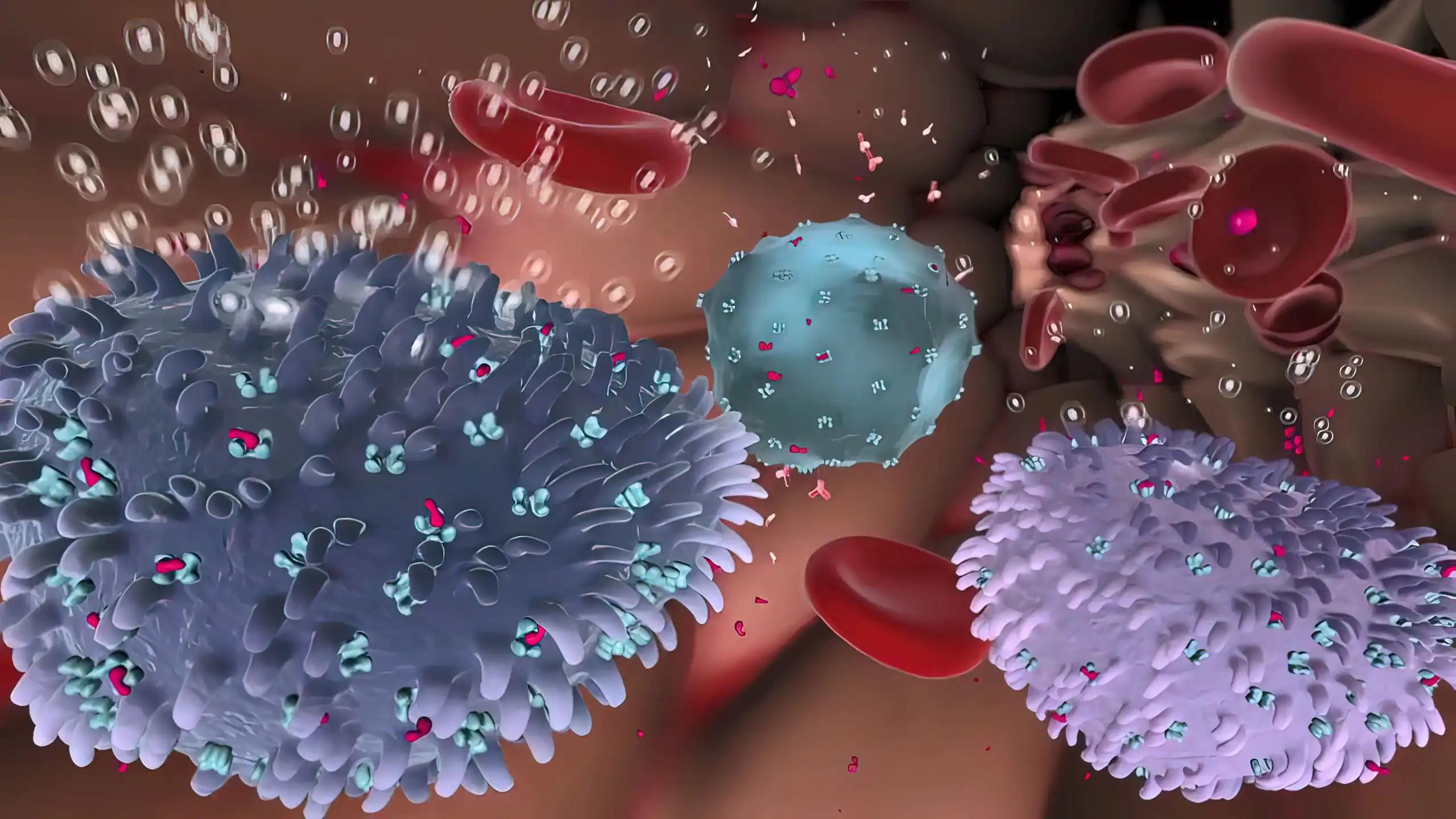KEY TAKEAWAYS
- This phase III DENIM trial compared the efficacy of MesoPher as a post-chemotherapy maintenance treatment to best supportive care in UPM patients.
- The primary endpoint was OS, calculated from the point of patient randomization.
- MesoPher did not increase OS, but patients with low disease burden and ECOG=0 had improved outcomes with DC vs. BSC.
Clinical trials have shown that Autologous Dendritic Cells (DC) infused with a lysate rich in various tumor-related antigens (known as MesoPher) display clinical efficacy, stimulate immune responses, and facilitate T-cell priming in patients (pts) with Unresectable Pleural Mesothelioma (UPM).
The DENIM trial is a phase III randomized study aimed at evaluating the efficacy of MesoPher as a maintenance treatment following first-line chemotherapy in comparison to best supportive care (BSC) in UPM pts.
The study enrolled pts who showed no progression after undergoing 4-6 cycles of platinum/pemetrexed chemotherapy. Maintenance treatment consisted of three bi-weekly MesoPher injections administered between 9 and 13 weeks post-chemotherapy, with additional boosters at the 4-month and 7-month marks.
The main endpoint was overall survival (OS), calculated from the time of patient randomization. Survival rates were analyzed using Kaplan-Meier curves, stratified by histological type and study center.
A total of 176 pts participated in the DENIM trial across four sites, with baseline characteristics being evenly distributed. The median age was 69 years, with a range of 38 to 82 years. A majority, 84.1%, had epithelioid UPM, 9.1% had biphasic, and 6.3% had sarcomatoid forms. In terms of ECOG performance scores, 36.9% had a score of 0, and 62.5% had a score of 1.
All pts successfully produced the vaccine. Out of these, 82 received at least one dose of MesoPher. The median time lapse between the last chemotherapy cycle and the first MesoPher injection was 11.6 weeks. During a median follow-up period of 15 months, 120 pts died. Treatment with Dendritic Cells (DC) was well-tolerated and safe. Median Overall Survival (OS) was 16.8 months for the DC group compared to 18.2 months for the Best Supportive Care (BSC) group (p=0.62). Eighteen-month survival rates were 43% and 51% for DC and BSC groups, respectively.
Disease control at week 6 was higher in the MesoPher group (56.8% vs 39.8%, p=0.02), yet Progression-Free Survival (PFS) showed no significant difference (5.4 vs 3.2 months, p=0.60). Notably, 66% of MesoPher recipients failed to receive more than three vaccinations due to early disease progression. However, pts with low disease burden and ECOG=0 experienced almost double the PFS with MesoPher compared to BSC (8.8 months vs 4.8 months).
Immunomonitoring indicated that MesoPher led to an increase in Ki67 expression on CD4+ T cells, correlating with PFS. After progression, 58.0% of all pts received PD-1 inhibitors as single-agent therapy, initiated earlier in the BSC group.
The DENIM study did not demonstrate a significant increase in OS with MesoPher treatment. One contributing factor may be the prolonged time between chemotherapy and MesoPher treatment initiation, resulting in many pts experiencing disease progression before receiving sufficient DC treatment.
This delay was partly due to the randomization process and additional sterility tests. However, pts with low disease burden and an ECOG score of 0 had improved outcomes with DC compared to BSC. Furthermore, MesoPher’s ability to increase Ki67 in CD4+ T cells correlated with PFS. The OS in the control group exceeded historical expectations, potentially due to a high rate of second-line PD-1 inhibitor treatment.
Source: https://cattendee.abstractsonline.com/meeting/10925/presentation/2745
Clinical Trial: https://classic.clinicaltrials.gov/ct2/show/NCT03610360
Aerts, J.G.J.V., Belderbos, B., Baas, P., Scherpereel, A., Berardi, R., Fennell, D., Kerstens, R., Cornelissen, R., Meerbeeck, J-v. Dendritic Cell Immunotherapy Versus Best Supportive Care as Maintenance Treatment in Patients with Pleural Mesothelioma.



